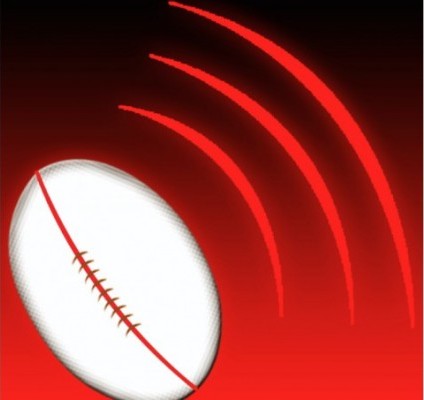Why the Eagle Women Didn't Win a Medal
Why the Eagle Women Didn't Win a Medal
This is an opinion column by Goff Rugby Report editor Alex Goff - Criticism of an Olympic performance is a dicey thing; you have to be aware that being at the Olympics is, for most athletes, a once-in-a-lifetime event, something to be celebrated, and I’m not really all that interested in bringing a player’s pride in representing her nation at Rio down all that far.
But … I do feel also that a team, in this case the USA Women’s 7s team, is not immune from criticism. These are the best our country has to offer, supposedly, and we have expectations.
This first-ever Olympic outing for Women’s Rugby was exciting, historic, and beautiful to watch. The Australian team that won Gold deserved to win it, and played terrific rugby to do so. And the New Zealand team that took Silver and the Canada team that took Bronze were, likewise worthy of great praise.
So perhaps it’s especially galling to the fans, people like me, and the players, to know that the USA team lost somewhat unluckily to New Zealand 5-0, and tied Australia, and yet ended up 5th.
They ended up 5th in part because they lost their opening game to Fiji, and in part because they couldn’t get anywhere near a scoring opportunity against New Zealand. Until their final game, against France, they really hadn’t proven they could score much. Take away the game against lowly-regarded Colombia, and the four games before the 5th/6th game produced five tries - one try a game. That’s not going to feed the donkey.
In the 5th/6th game against France, the USA players scored three tries - thank goodness for small miracles.
The reason they didn’t score was multi-fold. First off, far, far too many times the USA ballcarrier ran full-tilt into contact with no one behind her to help. Holding-on penalties, turnovers, or in-from-the-side penalties were the result.
Far, far too many times the USA ballcarrier took contact despite being on a small team that was clearly picked for speed and elusiveness.
Far, far too many times the USA ball carriers were taken into touch, or found herself facing three or four defenders and made no attempt to reverse back infield where there’d be a favorable overlap.
Defensively, I have no issues. The Eagles were superb defensively. They held Fiji (twice), Australia, New Zealand, France, and Colombia to only seven tries. No team, not the Gold Medal-winner, not the Silver Medal-winner, scored more than two tries against them.
So on defense, they did enough to win a medal, for sure. Offensively, they were pretty bad.
Now I don’t want to hit the players on this. I think if you watch the games again you’ll see a group that was physically fit, seemed to like playing together, were resilient, and tried to play as a team. In short, they did all of the sorts of things that don’t depend on the coach. They worked hard - that’s obvious to me - and they cared, a lot.
It wasn’t enough. And it wasn’t enough because of strategy, tactics, selections, execution, and long-term preparation.
Selections
As I said, the players gave all they could, I got a few notes sent to me saying that Kathryn Johnson should be lauded for playing with an injured labrum, but perhaps the injury hurt her performance. I am not so sure that’s correct. Sure, Johnson had the ball ripped out of her hands for a try - that was a tough one - and she got to dropsies like almost every other player did, but she played her heart out and did some very good things. She was the most useful player in the air, so it’s not KJ.
What I do question is having Kelly Griffin as a hooker. She’s got the talent and skills to be a first receiver, and in a game where Griffin is nowhere near as big as the other forwards on the field, he presence as a hooker put the USA at a size disadvantage. Fiji caused the USA problems in the breakdown, and I would have preferred to see Carmen Farmer, or Victoria Folayan mixing it up in tight.
Lauren Doyle is a player who doesn’t pass a great deal, and maybe that’s by choice or because she doesn’t have faith in her pass, but to be that type of player, you need to be ferocious breaking through tackles, and she isn’t, really. As a result, if you pick Doyle on your team, you need to have players in support and formulate a plan to use her skills. The USA team did not do that.
Richelle Stephens is a superb young rugby player with a lot of potential, but putting a higher-schooler in the Olympics when she was very little true international experience is unfair to her. And then to use her as an impact sub, where she was two or three minutes to so something special, is also unfair. Despite that, Stephens did make a big play in the second game against Fiji. She also was given a horrible pass deep in her 22 in the opening game which led to her getting rocked and Fiji scoring. It was harsh on the young player.
Carmen Farmer. Why pick her, the powerful punisher who is great in the air, if you’re not going to use her?
Victoria Folayan. She was the starting winger, and as a wing she is expected to either break tackles and outpace defenders. I didn’t see a lot of that. Maybe the field was narrow - I don’t know, it didn’t seem like there was a lot of room for anyone - but what I do know is that Jessica Javelet didn’t start at wing and scored four tries - two in the 12-12 tie of Australia, and one in the 19-5 win over France. Perhaps Falayan would have been more useful one slot in or at hooker or somewhere else.
Bui Baravilala. One of the central figures in the player-coach difficulties of earlier this year, Baravilala needed to provide slick and accurate passing, a little break here and there, and leadership. I didn’t see a lot of that.
Strategy
What was the strategy? What kind of team did they have? The USA team was, for the most part, small, and yet was asked to go into contact a lot. They couldn’t pass long passes, and yet spread themselves across the field. They selected tall players, and didn’t use that height advantage.
And playing a completely lateral game meant that players never had support behind them. What happened to the old idea of running in threes? What happened to the word support? USA players repeatedly went into contact with no one to help them, because, as far as I could see, they thought they were supposed to be somewhere else. Richelle Stephens scored the game-winner against Fiji on the third day because she followed her pass. Duh.
Tactics
This is more what a player or group of players do on the field based on what they see in front of them. Like I said before, they failed to see mismatches, and failed to adjust to Fiji’s rush defense.
Execution
The biggest issue for the USA players wasn’t how hard they worked or how much they cared - it was clear they worked hard and cared a lot. The biggest issue was catching the ball, passing properly, and running at the right depth so you get a legal pass. Everyone failed that test at one point. Some players failed repeatedly. There’s no excuse for being in front of the ballcarrier when you’re in support - it’s the first thing you learn in training.
Long-Term Preparation
We know the long-term preparation for the USA team was poor. Richie Walker was the team’s third coach this season. The players were shifted around. Walker himself made a ton of changes. No one knew who was on the team or what they should be doing. That’s down to the meltdown between Nigel Melville and Ric Suggitt.
As a result, the team tactics and strategy changed at least twice, and the players changed frequently. Take a look at the lineup, and you won’t see a player’s signature on it. You will see Walker’s signature, with Alex Magleby signing second. Take a look at the approach to offense, and you won’t see the players’ signatures on that, either.
And yet, somehow, with an approach that didn’t produce tries, and selections that didn’t use the best talents the players involved had to give, and a buildup that was, at best, tumultuous, the USA women busted their butts, played the hell out of their defensive pattern, and almost beat the gold medalists … In the end, thinking about all of this, I am pretty proud of how hard they worked. I just wish it had been packaged differently.










